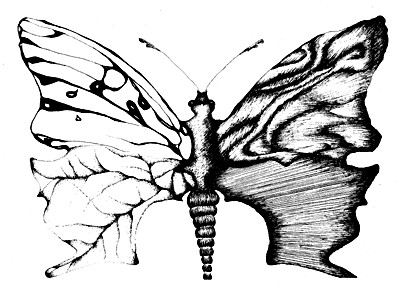All Nonfiction
- Bullying
- Books
- Academic
- Author Interviews
- Celebrity interviews
- College Articles
- College Essays
- Educator of the Year
- Heroes
- Interviews
- Memoir
- Personal Experience
- Sports
- Travel & Culture
All Opinions
- Bullying
- Current Events / Politics
- Discrimination
- Drugs / Alcohol / Smoking
- Entertainment / Celebrities
- Environment
- Love / Relationships
- Movies / Music / TV
- Pop Culture / Trends
- School / College
- Social Issues / Civics
- Spirituality / Religion
- Sports / Hobbies
All Hot Topics
- Bullying
- Community Service
- Environment
- Health
- Letters to the Editor
- Pride & Prejudice
- What Matters
- Back
Summer Guide
- Program Links
- Program Reviews
- Back
College Guide
- College Links
- College Reviews
- College Essays
- College Articles
- Back
Individuality in Lord of the Flies
Once upon a time, a group of schoolboys were in an airplane accident in the midst of a war and crashed onto an uninhabited island. At first, the group of boys were ecstatic because there was no parental authority so they could have the freedom to do whatever they wanted without any restrictions. They tried to work together to survive as they form separate groups to send fire signals in order to be rescued. Additionally, they had a form of order in which whoever had the conch shell was allowed to speak. However, as patience drew out, many of the boys took control, causing chaos for the struggle for power as shown through Ralph and Jack. It shows savagery and the flaws in civilization in which laws are made to manage chaos and lawlessness. Many characters throughout the novel have different opinions regarding how to survive and what is most important to them. Lord of the Flies by William Golding clearly depicts the cliche “Be yourself. Everyone is taken” as each boy contributes a particular aspect such as leadership and support in order for survival at an unknown place.
Through the cliche “Be yourself. Everyone is taken”, Ralph and Jack in Lord of the Flies characterize different leadership skills in order to take control of the island. Ralph symbolizes order and democracy and calls the conch in order for everyone to get along. As a chief is decided among the group, Ralph claims his position as he forces others to listen to him: " ‘All this I meant to say. Now I've said it. You voted me for chief. Now you do what I say.’ They quieted, slowly, and at last were seated again.” (Golding 81). Ralph comes to a decision to build a signal fire in order to be rescued so he demands the other boys to work together if they want to go home. In addition, Jack desires for power as he takes on the role of the hunter to provide food for the boys in order to survive. Jack represents dictatorship and savagery in the flaws of civilization because he always contradicts Ralph’s decisions and power. For example, when Ralph demands to build a fire, Jack defies and goes with a group of boys to go hunt because they are hungry. Though Ralph and Jack, they portray a different aspect of leadership as they each have different views and opinions on what is most important for survival on the island.
On the other hand, with leadership, comes support and brain behind every idea; “Be yourself. Everyone is taken” shows how Piggy and Simon are unique regarding his intelligence. Piggy embodies civilization and balance as he tries to be reasonable and fair to everyone. Though many of the boys stick with Jack to go hunt, he reminds the others to stay focused and not fight: “Which is better –to be a pack of painted Indians like you are, or to be sensible like Ralph is… Piggy shouted again. Which is better –to have rules and agree, or to hunt and kill” (Golding 180). Piggy sticks with Ralph throughout the end because he is determined on being rescued and not getting sidetracked. Also, despite what others think, Piggy always sticks up for himself especially when others bully him and break his specs to make a fire. Moreover, Simon portrays goodness and saintliness as he is wise about the beast on the island. Simon informs the littluns that they should not be afraid of the beast because the beast is inside themselves figuratively. Additionally, Simon realizes that the beast they see is a dead man on a parachute. However, the other boys get out of hand and kill Simon stating he is the beast. Although Piggy and Simon are wise in their own individual ways, they are overpowered by the other boys, which leads them to their death.
In the Lord of the Flies by William Golding, characters can be identified by the cliche “Be yourself. Everyone is taken” as Ralph and Jack portray leadership, while Piggy and Simon represent intelligence. Ralph is known to be the leader of the group as he stays on track of his goal of being rescued. Additionally, Jack focuses on hunting, having fun, and taking control. On the other hand, Piggy is known to be a unique character as he sticks to his true self and does not let anyone change it. Moreover, Simon is always wise as he likes to spend alone time figuring out moral questions rather than causing chaos with the other boys. The cliche “Be yourself. Everyone is taken” shows that every individual brings a certain uniqueness towards a group and that they should never try to be something they are not because it can ultimately fail.

Similar Articles
JOIN THE DISCUSSION
This article has 0 comments.
